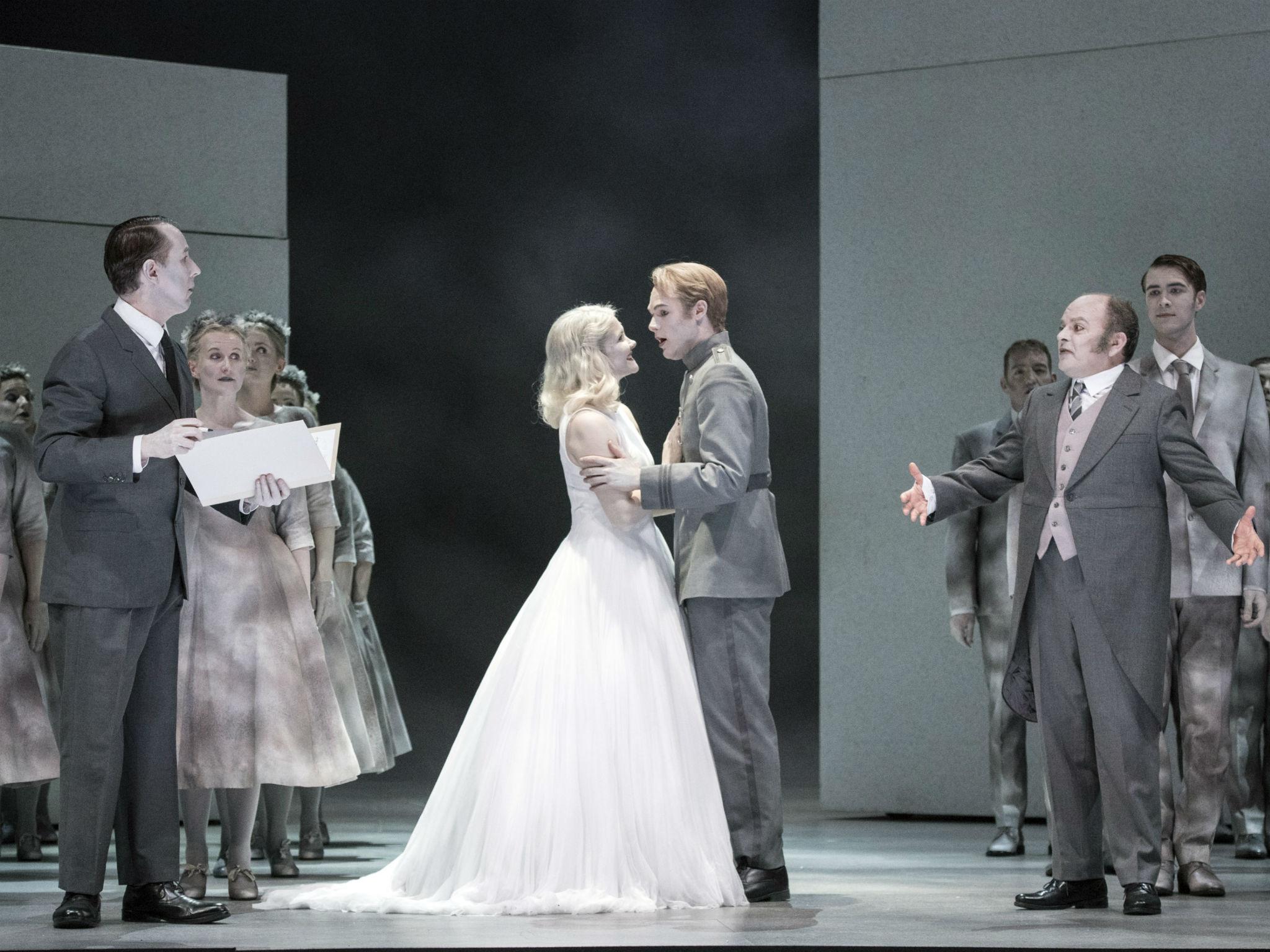Béatrice et Bénédict, Glyndebourne Festival Opera, review: 'The beauty of the playing and the physical comedy are redeeming elements'
Glyndebourne Festival Opera programmes a major work by Berlioz almost universally forgotten

Your support helps us to tell the story
From reproductive rights to climate change to Big Tech, The Independent is on the ground when the story is developing. Whether it's investigating the financials of Elon Musk's pro-Trump PAC or producing our latest documentary, 'The A Word', which shines a light on the American women fighting for reproductive rights, we know how important it is to parse out the facts from the messaging.
At such a critical moment in US history, we need reporters on the ground. Your donation allows us to keep sending journalists to speak to both sides of the story.
The Independent is trusted by Americans across the entire political spectrum. And unlike many other quality news outlets, we choose not to lock Americans out of our reporting and analysis with paywalls. We believe quality journalism should be available to everyone, paid for by those who can afford it.
Your support makes all the difference.Full marks to Glyndebourne for staging Berlioz’s Béatrice et Bénédict, a major work almost universally forgotten. It’s a backwards-through-a-hedge love-story, hard to characterise: Berlioz described it as “a caprice written with the point of a needle”. He was inspired by Shakespeare’s Much Ado to write his own (verbose) libretto, and he only occasionally allows his characters – and his audience – to luxuriate in bel canto beauty, preferring to cut the sweetness of his often very sweet music with acidulated irony.
Director Laurent Pelly presents the opening scene with surreal wit, the chorus emerging like mechanical puppets from three giant boxes, but thereafter his habitual inventiveness deserts him: towers of cardboard boxes enact a slow and meaningless dance round the stage for the remainder of the first act, to be replaced by a forest of white chairs for the second. The lovely duets and trios offer carte blanche for visual magic, but Pelly’s rigid scheme flatly rejects that offer.
Yet the beauty of the playing (Antonello Manacorda in the pit) and the physical comedy of the acting are redeeming elements. Stephanie d’Oustrac and Paul Appleby are irresistible in the title roles – her delicate vocal control and his generous tenor warmth make entirely credible the way her fizzing fury and his defiant cynicism are gradually eroded to reveal passionately beating hearts.
Join our commenting forum
Join thought-provoking conversations, follow other Independent readers and see their replies
Comments